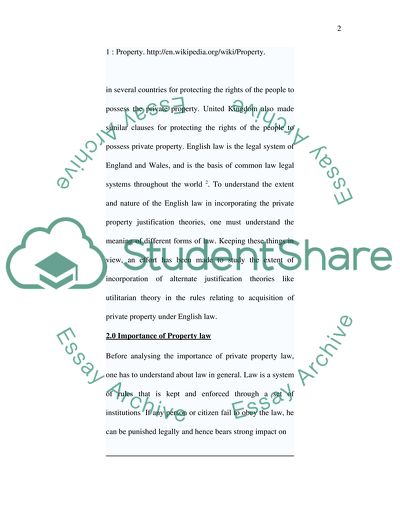Cite this document
(Loss of Rights to Personal Property in English Law Assignment, n.d.)
Loss of Rights to Personal Property in English Law Assignment. https://studentshare.org/law/1706544-how-far-are-the-alternative-theoretical-justifications-for-private-propertyoccupation-theory-labour-theory-utilitarian-theory-and-economic-theory-reflected
Loss of Rights to Personal Property in English Law Assignment. https://studentshare.org/law/1706544-how-far-are-the-alternative-theoretical-justifications-for-private-propertyoccupation-theory-labour-theory-utilitarian-theory-and-economic-theory-reflected
(Loss of Rights to Personal Property in English Law Assignment)
Loss of Rights to Personal Property in English Law Assignment. https://studentshare.org/law/1706544-how-far-are-the-alternative-theoretical-justifications-for-private-propertyoccupation-theory-labour-theory-utilitarian-theory-and-economic-theory-reflected.
Loss of Rights to Personal Property in English Law Assignment. https://studentshare.org/law/1706544-how-far-are-the-alternative-theoretical-justifications-for-private-propertyoccupation-theory-labour-theory-utilitarian-theory-and-economic-theory-reflected.
“Loss of Rights to Personal Property in English Law Assignment”. https://studentshare.org/law/1706544-how-far-are-the-alternative-theoretical-justifications-for-private-propertyoccupation-theory-labour-theory-utilitarian-theory-and-economic-theory-reflected.


